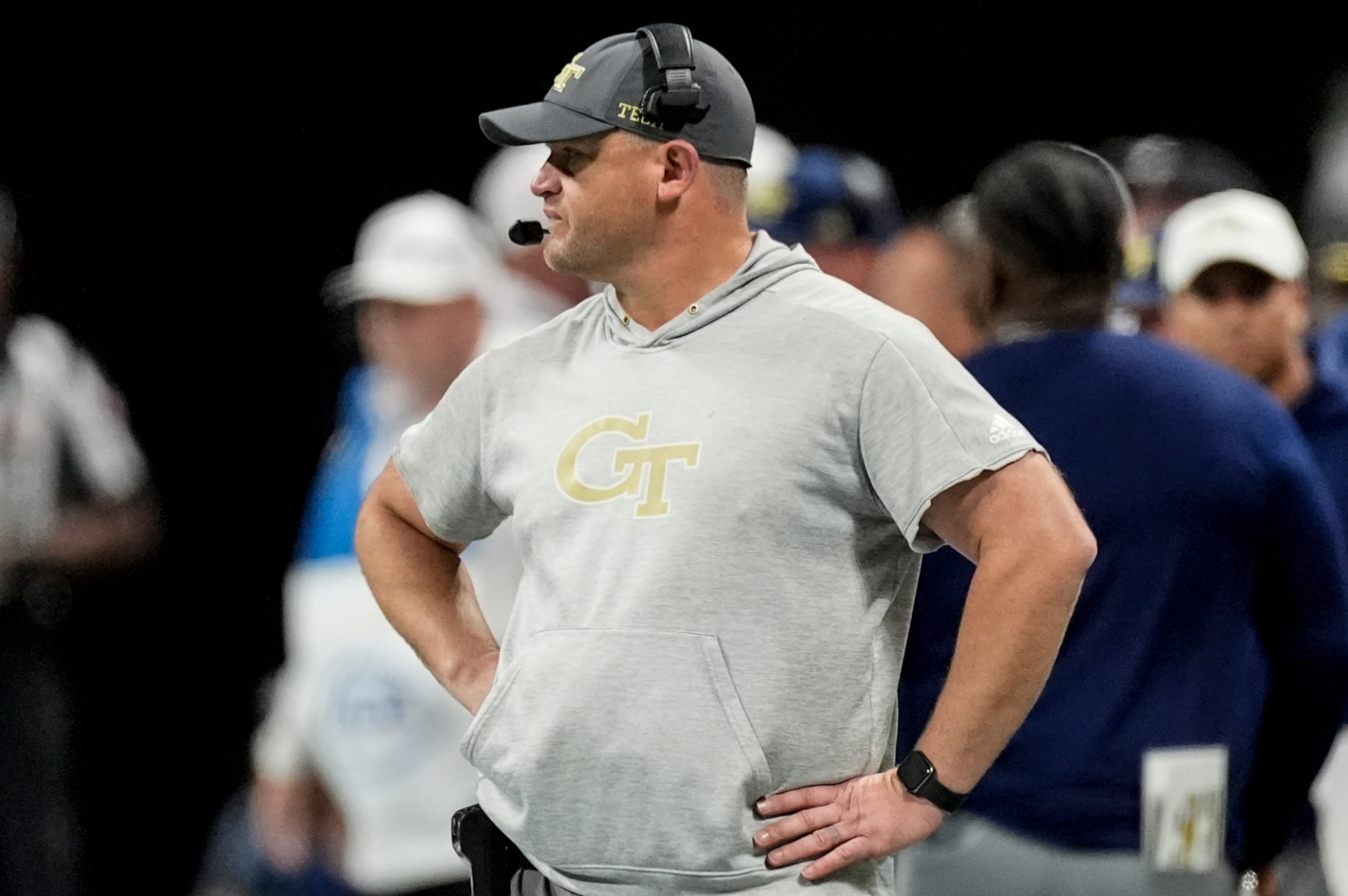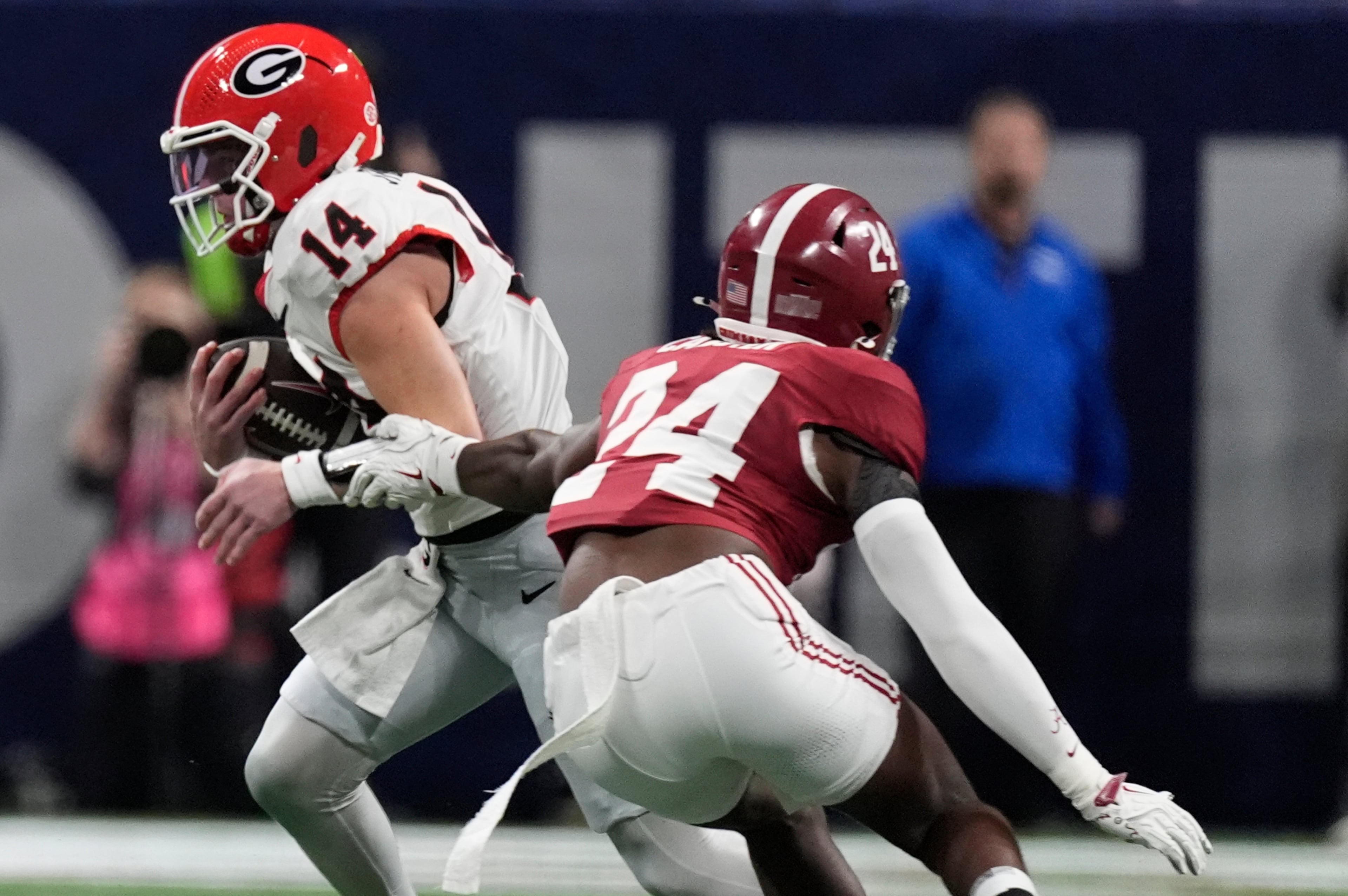What to make of Georgia Tech’s season

The season ended with a litany of accomplishments not in accord with the final 15-18 record. Beyond winning seven of its final 10 games, Georgia Tech played with an offensive consistency achieved once previously in the past two decades by Yellow Jackets teams.
By the measure of KenPom, Tech averaged at least one point per possession in all 10 of those games, often significantly more. It tied the 2021 ACC championship team for the longest such streak in KenPom’s data set, which dates to the 2001-02 season.
That’s all the more remarkable considering that, in the previous nine games, the Jackets were at 0.96 points per possession (a rate that generally ensures defeat) or below seven times. They flipped from floundering to flying, their journey taking them to the second round of the ACC Tournament, where their season came to an end with an 89-81 loss to Pittsburgh.
The team’s streak of nine point-per-possession games against ACC competition was, going into Thursday’s tournament games, tied for the fourth longest in the conference. The Jackets also gave away fewer turnovers per game (10.6) than any Tech team since the NCAA began tracking the statistic in the 1992-93 season.
In his last game in his only season in a Tech uniform, forward Ja’von Franklin managed a stat line – 19 points, 15 rebounds, six steals and four assists – that hadn’t been achieved previously by a Division I player since at least the 2010-11 season, according to sports-reference.com. It was the last of seven double-doubles in the Jackets’ final nine games, including the fifth triple-double in school history. Guard Miles Kelly averaged 19.8 points per game in his final eight games, making 35 of 79 3-point tries (44.3%). In his final 12 games, guard Kyle Sturdivant scored 12.6 points per game, wove together a 53/19 assist/turnover ratio and authored multiple clutch shots. At season’s end, the Jackets didn’t look like the 13th-place team in the ACC.
“They’re a good basketball team,” Pitt coach Jeff Capel said after Wednesday’s game. “I mean, coming into this game, besides Duke, they were the hottest team.”
It is to the credit of the Jackets, coach Josh Pastner and his staff that they persevered through a nine-game losing streak to find the answer, going with a six-man rotation that often depended largely on the five starters.
“The last month of February going into this tournament, we’ve been playing well, having fun with each other on the court,” guard Lance Terry said.
But with the season complete and Pastner’s future with the team uncertain, a question to ask is why it took so long to find that combination.
“Obviously, if I knew (then) what I know now, I would have just gone with five, six guys,” Pastner said after the loss to Pitt. “It just took us time to evolve as a team.”
The starting five – Franklin and guards Deebo Coleman, Kelly, Sturdivant and Terry in the lineup (with forward Jalon Moore coming off the bench) – was Pastner’s 11th of the season, debuting in a Feb. 4 loss at N.C. State, the last game of the nine-game losing streak and the first game when the Jackets’ play began to improve.
Had Pastner hit upon that combination earlier and made other tweaks to the offensive and defensive schemes, could the Jackets have avoided their January tailspin? If Tech had won one-third of the nine consecutive losses, its record going at the end of the regular season would have been 17-14 overall and 9-11 in the ACC. That probably would not be enough for an NIT bid, but it would have lowered the heat on Pastner considerably, particularly given the fact that Tech would have vastly outperformed its preseason last-place projection.
Even though nothing would be different roster-wise, the idea that that hypothetical 17-14 Jackets team could be in NCAA Tournament contention next season with a couple of transfer-portal additions would not feel as improbable as it might now. Pastner pitched that future Wednesday, saying that “I believe (an NCAA Tournament berth) will get done” if he were allowed to return for an eighth season.
There is room for nuance. The Jackets upset eventual ACC regular-season co-champion Miami with Rodney Howard starting at center and with Franklin and Sturdivant – linchpins over the final stretch – playing a combined 22 minutes, giving Pastner reason to believe that the rotation used in that game could work. Terry was out for four games of the nine-game losing streak with a hamstring injury, so Pastner couldn’t have gone with his eventual six-man rotation even if he had wanted to during that time.
Sturdivant’s play picked up dramatically after his return to the starting lineup against Louisville on Feb. 1. Before that, was he ready to play at such a high level?
The competition in the first half of the ACC schedule was markedly stronger than in the back half. Guard Deivon Smith was playing well off the bench until the time of his ankle injury, after which he sat out the final eight games. Would Smith have affected the team’s balance, for better or worse, had he been healthy?
In their first 13 ACC games, the Jackets shot 30% from 3-point range before hitting on 41% in the final seven league regular-season games. Even if Pastner had decided to go with the six-man rotation, there’s no telling that the Jackets would have shot any better. For instance, in its two games in the ACC Tournament, Tech shot 16-for-52 from 3-point range (30.8%).
Beyond scheme or rotations, perhaps the turnaround happened when it was supposed to happen. As Pastner’s teams often have done, the Jackets played better in February as players developed and roles were clarified. In Pastner’s tenure, his teams are 23-42 (.354) in the first half of the ACC season (including the first eight games of the 17-game 2021 season) and 30-36 (.455) in the second half. While the schedule often has been favorable, they’re 15-6 in the final three ACC games of the regular season.
As has been remarked often, it speaks well of Pastner’s teams to hang in through rocky starts to finish on an upswing. But the rocky starts go on the record, too.



